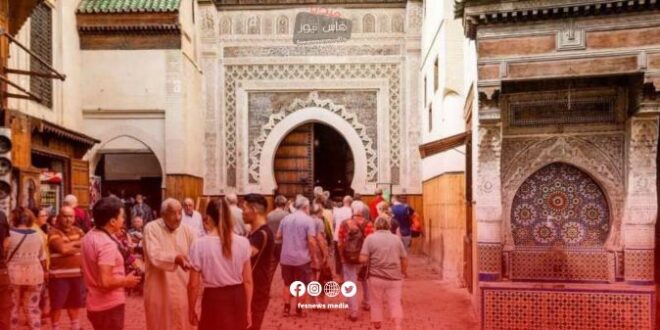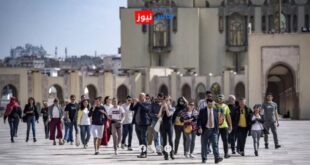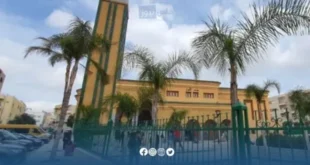The tourism sector in Morocco is one of the main pillars of the national economy, serving as a major source of financial revenues and job opportunities. In recent years, the sector has faced significant challenges due to global changes, including economic crises, climate fluctuations, and the repercussions of the COVID-19 pandemic, which led to a noticeable decline in the number of incoming tourists. In this context, Morocco’s tourism sector faces new opportunities for development and growth, with the need to adapt to global changes.
Key Challenges in the Moroccan Tourism Sector
- The Impact of the COVID-19 Pandemic: The COVID-19 pandemic stands as one of the largest challenges for the tourism industry in Morocco and globally. Travel restrictions and international flight bans caused a collapse in tourism activity, severely impacting hotels, restaurants, travel agencies, and local communities dependent on tourism revenue. Although the sector has begun to recover gradually, the pandemic has had lasting effects on tourism strategies and visitor incentives.
- Climate Change: Climate fluctuations, such as droughts and floods, pose another challenge to Morocco’s tourism sector. These changes directly affect the natural resources the sector relies on, including beaches, mountainous regions, and heritage sites. Additionally, eco-tourism, which is increasingly popular among tourists, requires safeguarding and preserving the environment from degradation.
- Global Competition: The global tourism sector has become increasingly competitive, with new destinations offering advanced infrastructure and innovative tourist experiences. Despite Morocco’s rich natural and cultural potential, it faces tough competition from other destinations in the region. The sector also requires significant investment in infrastructure and modern technology to enhance the tourist experience.
- Political and Social Instability: While Morocco is considered one of the most politically stable countries in the region, any political or social disturbances could negatively impact the country’s reputation and reduce the flow of tourists. This requires the government to improve its efforts to maintain security and political stability, dispelling potential concerns among travelers.
Opportunities in the Moroccan Tourism Sector
- Eco-Tourism and Sustainable Tourism: Eco-tourism and sustainable tourism present one of the most prominent opportunities for Morocco in light of global changes. The country is home to many stunning natural areas, such as the Atlas Mountains, the Sahara Desert, and beautiful beaches, which can be marketed as eco-friendly tourist destinations. Additionally, there is a global shift toward tourism that respects the environment and supports the local economy, aligning with the aspirations of many contemporary tourists.
- Cultural and Heritage Tourism: Morocco boasts a rich cultural and historical heritage, from ancient cities like Fez and Marrakech to archaeological sites like Volubilis. The promotion of cultural tourism can be expanded, creating new markets for tourists interested in history and traditional arts. Preserving and maintaining heritage sites is also an opportunity to attract tourists seeking rich and unique travel experiences.
- Medical Tourism: Morocco is becoming a promising destination for medical tourism, particularly in regions known for their natural resources, such as hot springs and mineral treatments. By improving health facilities and offering alternative treatments in line with global health trends, Morocco can further develop this type of tourism.
- Digital Tourism: Given the increasing reliance on digital technologies, Morocco can capitalize on this trend by enhancing digital tourism, such as offering virtual tours or developing interactive platforms to sell tourism experiences. This would help attract a younger generation of tourists who heavily depend on the internet for travel decisions.
- Domestic Tourism: Due to international travel restrictions, domestic tourism has become an attractive option for Moroccans. The government and the private sector can enhance local tourism by improving the quality of services and organizing local festivals and events to encourage citizens to explore the country’s tourist destinations.
- Infrastructure Development: There is a significant opportunity for Morocco to invest in the improvement of infrastructure, including airports, ports, and hotels. Additionally, developing public transportation and enhancing digital tourism applications, such as mobile apps, interactive maps, and e-payment services, will improve the visitor experience and make it easier for tourists to navigate the country.
Conclusion:
The tourism sector in Morocco faces significant challenges due to global changes, but there are also numerous opportunities to achieve sustainable growth in this sector. By focusing on eco-tourism and cultural tourism, innovating in tourism services, and investing in modern technologies, Morocco can become a leading tourist destination in the Mediterranean and North Africa. This will require a collaborative effort from the government, the private sector, and local communities to ensure sustainable growth in this vital industry.
Source: Fes News Media
 فاس نيوز ميديا جريدة الكترونية جهوية تعنى بشؤون و أخبار جهة فاس مكناس – متجددة على مدار الساعة
فاس نيوز ميديا جريدة الكترونية جهوية تعنى بشؤون و أخبار جهة فاس مكناس – متجددة على مدار الساعة













